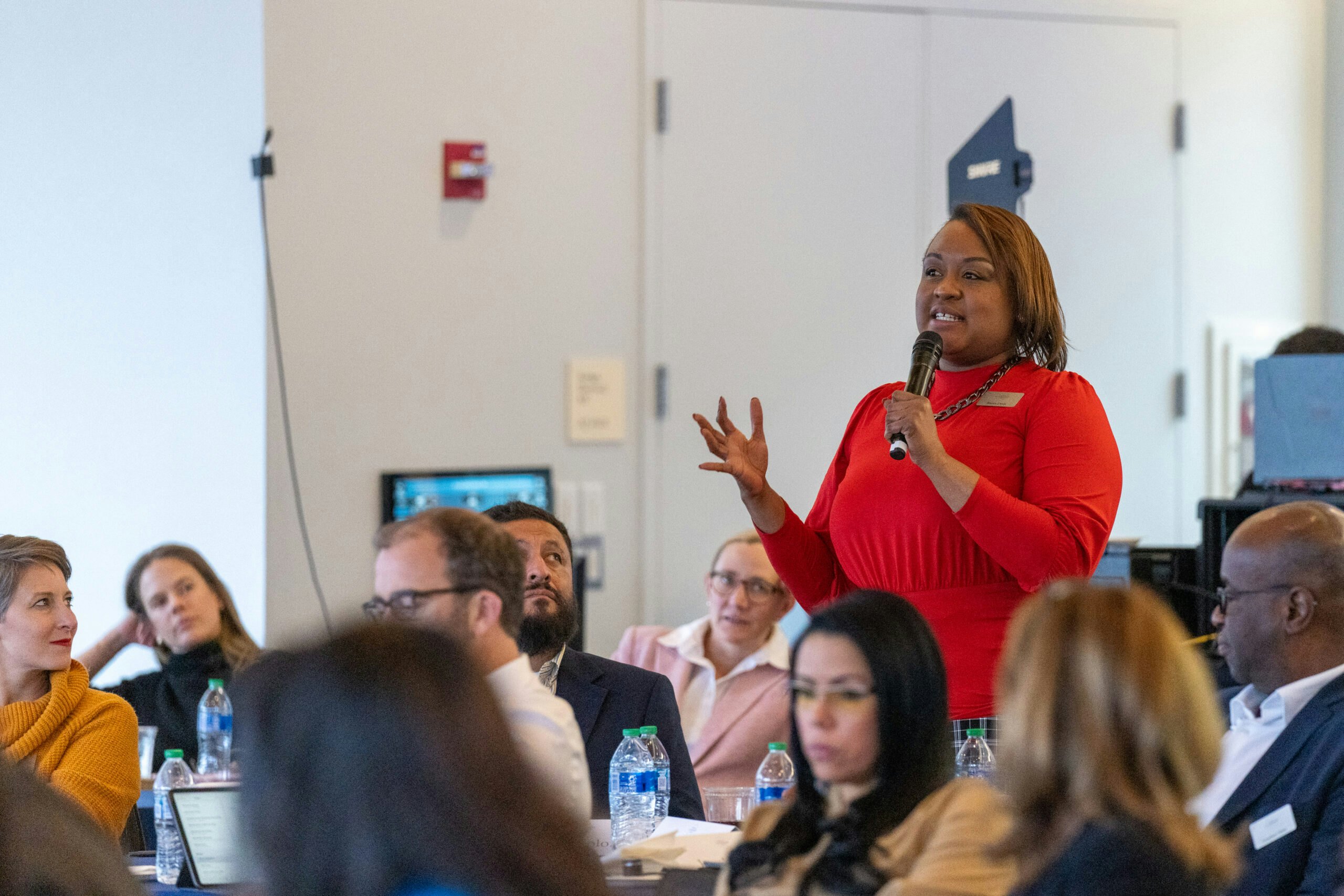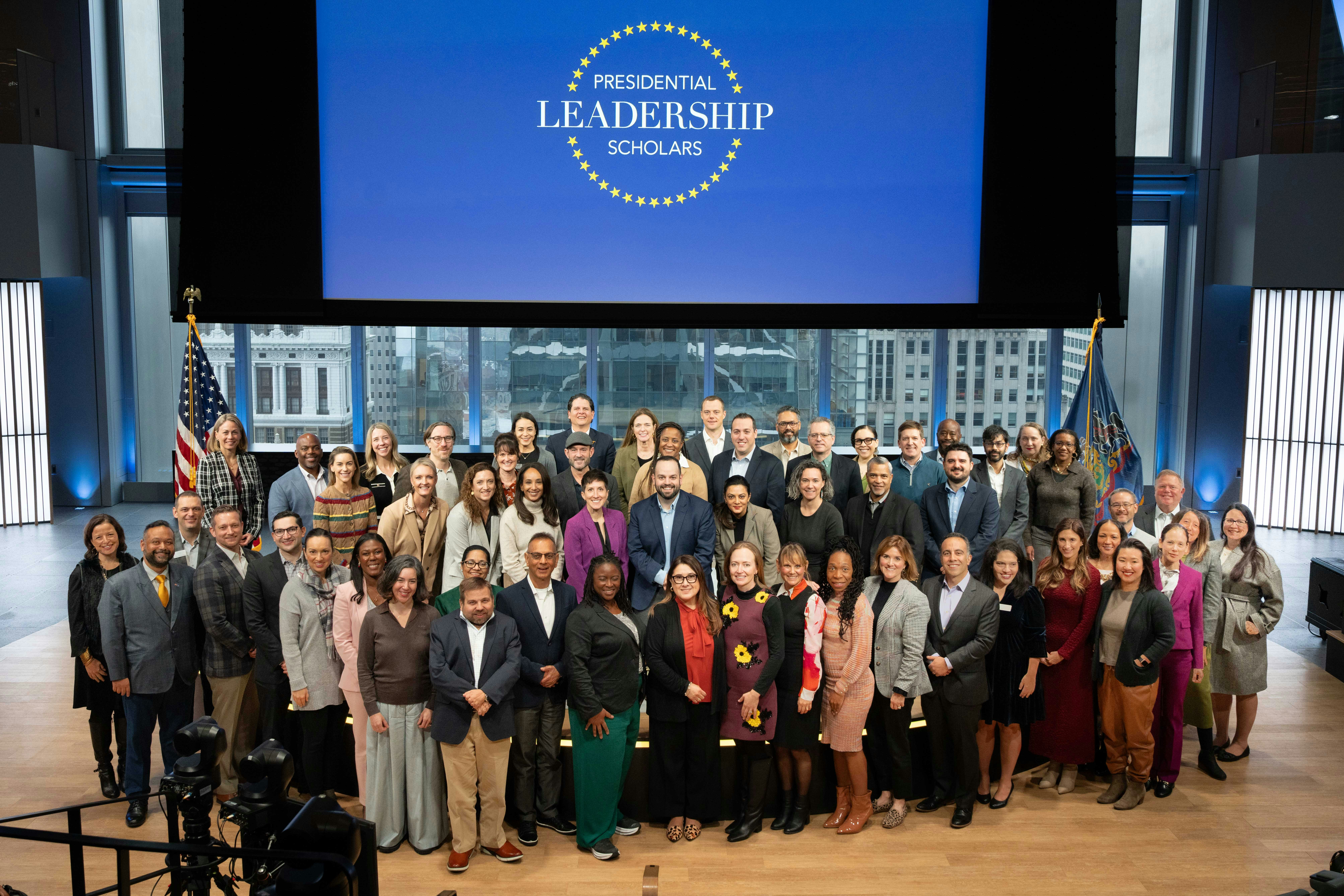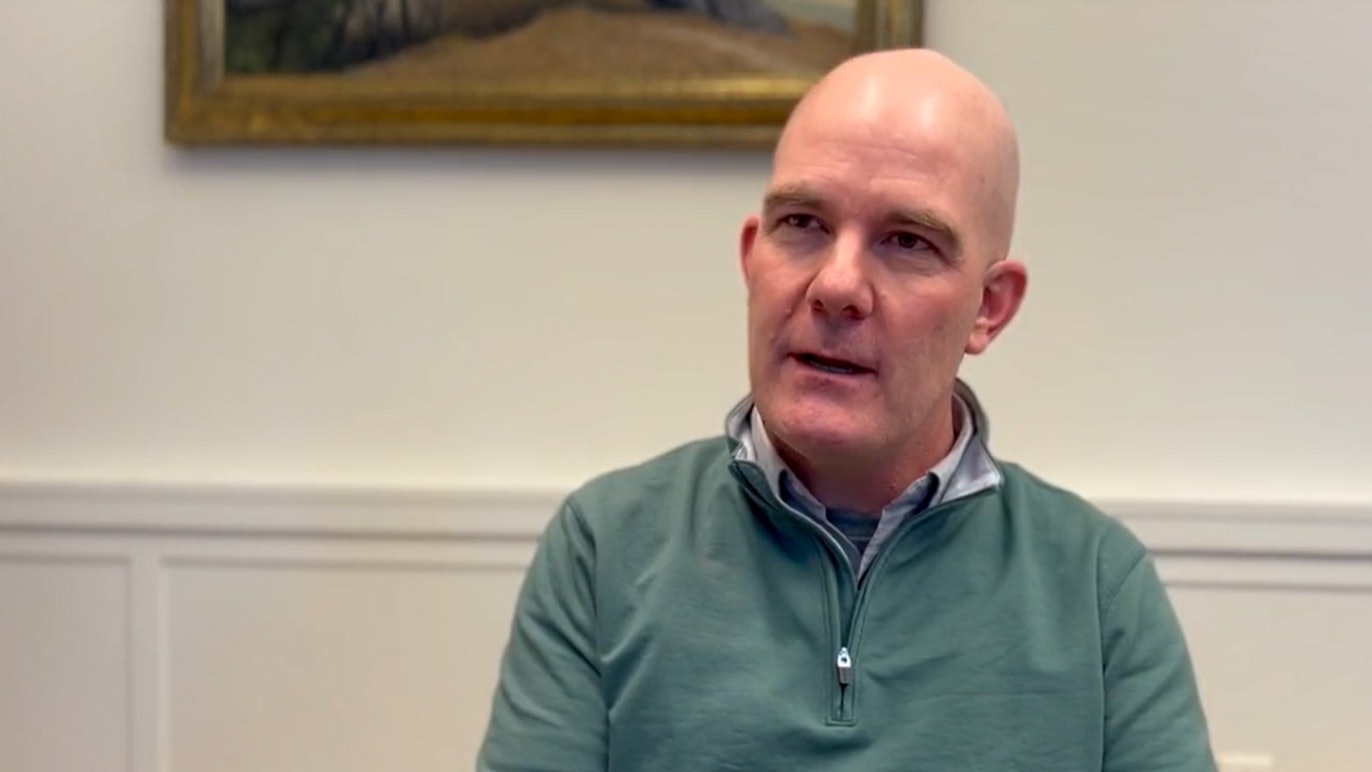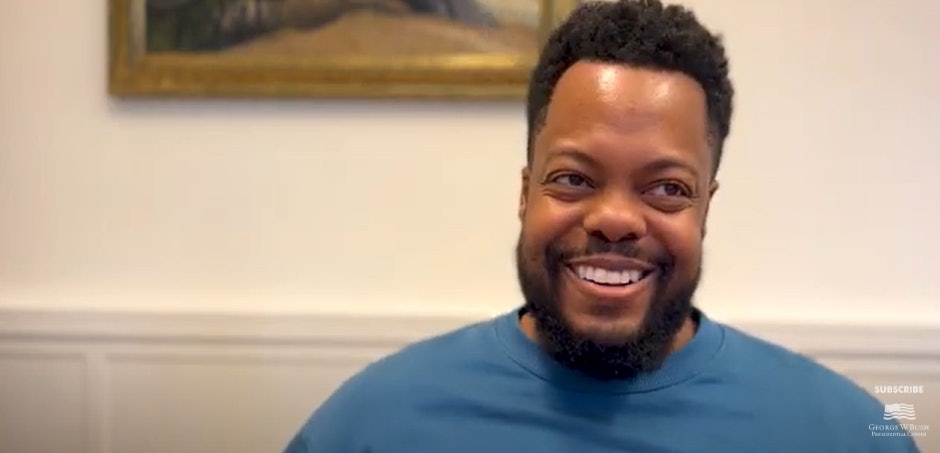This spotlight features Nubia Peña, 2023 Presidential Leadership Scholar, Utah Governor Spencer J. Cox’s Senior Advisor of Access and Opportunity and the Director for the Utah Division of Multicultural Affairs. She discusses her background and career trajectory in advocating for historically underserved communities as well as the lessons learned in the Presidential Leadership Scholars program.
Please tell us a little bit about yourself and your personal leadership project.
I was born in Puebla, Mexico, and migrated to the United States when I was 4 years old. My three sisters and I were raised in Philadelphia by my incredible mother who journeyed to America with the prayer in her heart that her daughters would have a better life. She left a career as a teacher and principal and had to begin all over again, but she never complained as she worked during the day and attended English classes at night. Her grit and determination have been a blueprint for my life.
As a proud Mexican immigrant and daughter of working class parents, I am often overwhelmed with gratitude that I am able to engage daily in work that I love at a statewide and national level, with leaders that inspire me, and on behalf and in partnership with communities that I cherish.
I now have the incredible privilege of serving in a dual capacity as Governor Cox’s Senior Advisor of Access and Opportunity and as the Director for the Utah Division of Multicultural Affairs (MCA). The integrated roles are well paired to advance the Cox/Henderson administration’s mission to promote well-being and thriving for all Utahns through efforts that help us understand the needs of our most vulnerable populations in the state. The broad vision for this role is to work in partnership with state leaders and stakeholders to eliminate service gaps, address preventable barriers, and work to create welcoming environments that are equipped to engage with our quickly diversifying population. Much of my work is rooted in building strong relationships with community leaders, advocacy groups, and stakeholders representing underserved populations so that we increase opportunities available to all Utahns.
My personal leadership project focused on developing a framework that would provide a process to better understand system barriers to improve service delivery to Utah’s growing population. The Data Informed, Opportunity Driven, and People Inspired approach helps build habits of mind to identify access gaps and reduce disparities.
This project evolved into the Utah Thriving framework, specifically inspiring how the Utah Division of Multicultural Affairs (MCA) develops programming, allocates resources, and discusses the “why” behind our work. It also influences our engagement practices – helping meet people where they are – and constantly reminds us of the power of beginning with what is strong and resilient in the community.
This framework has been presented in over 50 different convenings and forums including global and statewide leadership conferences, symposiums, executive training, professional development workshops and staff retreats.
Please give us an update on what you have been working on since completing the Presidential Leadership Scholar program.
The lessons learned during my time in the PLS program have inspired the evolution of my priorities and the partnerships we have cultivated at MCA. We have taken a more proactive role in leading out and collaborating on efforts that bridge divides, inspire hope, and create impact. Some of these initiatives include amplifying Governor’s Cox’s Disagree Better message to reduce the political hostility that continues to divide us across party lines, cultivating hope-centered leadership as a statewide strategy when working with underserved and marginalized communities, and magnifying the untold stories of Utahns who have dedicated their lives to serving their state and broader communities.
PLS also grew a deep desire to create local development opportunities for emerging leaders to get involved and know they have a place at the table. The MCA team created programming for young professionals to engage in and imagine their role in local and state government, to serve on boards and commissions, and contribute to the decision-making landscape by working across aisles with people from various backgrounds.
Additionally, over the last year, MCA has grown our reach to the four corners of the state by developing community reinvestment initiatives. The Strengthening Capacity grant program and the Utah Thriving Sponsorship are two efforts informed and suggested by community partners who are integral in shaping the direction of our division. Through private/ public partnership we’ve also created statewide surveys to capture the opportunities and gaps that exist in housing, health care, economy, and education from the perspective of frontline providers and have written policy reports that help identify critical pathways to explore during the legislative process.
Another initiative our team has reimagined is our Multicultural Youth Leadership Programming that we have operated since 2012 – primarily with the goal to inspire leadership, civic engagement, volunteerism, and college and career readiness. Seeking to reach youth at the farthest margins, we have created programs for students who are system involved through foster care and juvenile justice. As a former juvenile defender, I witnessed firsthand the lack of community-oriented programs that build leadership capacity for youth who are incarcerated or in state’s custody to better navigate the world once they transition back into the community.
These new leadership initiatives offer our young leaders dynamic opportunities to self-reflect through mural paintings, writing workshops, and facilitated discussions with invested and skilled mentors. Through trauma-informed instruction, youth are encouraged to imagine a life outside of being detained, envision possibilities for an empowered life, and inspire reintegration and alternative pathways to contribute meaningfully.
In my role as a Senior Advisor, I continue to assist in developing, identifying, and overseeing strategies that grow the ecosystem of talent through our fellowship program, support small and diverse businesses through strategic campaigns, champion policies during the session that elevate the needs of underrepresented communities, and increase family friendly policies in the workplace. Due to my background as a law enforcement victim advocate, I also help promote policy efforts that address the prevention, intervention, and response efforts of domestic and sexual violence, abuse of aging and medically vulnerable, and bring awareness to the intersections of trauma, trafficking, and our incarcerated populations.
Lastly, one of the greatest privileges I have had in this role is serving on the Olympic Bid Committee and representing Governor Cox in Lausanne, Switzerland to present our formal bid to the International Olympic Committee (IOC).
Which lessons learned during the Presidential Leadership Scholar program have stayed with you the most, and how have you put them into action?
Each module was uniquely impactful and the lessons learned during our visit to Lyndon B. Johnson’s Presidential Center that focused on persuasion, influence, and strategic partnerships were tremendously timely, particularly with some of the challenges I was facing in that season of my career. However, a common thread and lesson that I found in every session and reiterated by each guest speaker was the value of relationships.
PLS is a professional network and community unlike any other I have ever experienced. From the very first day, our facilitators invited us to engage with a room full of strangers in thoughtful and intentional ways that broke through the superficial barriers. As the program continued, it was clear that relationships, trust, and community were foundation pillars of the PLS experience. Each module brought forth new curated exchanges to learn from one another and find inspiration in our unique journeys. But beyond feeling a sense of awe by the caliber of leaders I was surrounded by, I was most moved by the generosity and kindness my classmates showed me during a difficult moment I had to navigate.
You have been an advocate and champion for underrepresented populations throughout your career. What motivates you to do this important work?
I credit my beautiful, fierce, and resilient mother for inspiring my deep love and commitment to serve on the frontlines. She has been an exceptional role model of compassion, service and sacrifice. I remember observing her interactions as she worked with people who had cognitive and physical disabilities, adults who were verbally and physically non communicative and wholly dependent on their caretakers. I was in awe of her patience and kindness to people who could never pay her back or do anything for her in return. She taught me early on that what we had, we should share, especially if someone else had less and needed it more.
Additionally, my career as a law enforcement victim advocate was incredibly meaningful because it allowed me to see multiple touchpoints of the justice system. My day to day efforts ultimately led to me pursuing a law degree at the S.J. Quinney College of Law. I spent close to 10 years serving survivors of domestic and sexual violence, child abuse, human trafficking, and assisting families who lost a loved one to suicide, homicide, and violent crimes. Working with people who experienced higher risk of harm such as our migrant and refugee populations, people who were unsheltered, who lived with a disability, and were older or medically vulnerable. Advocating for those who were system-involved, incarcerated, and in foster care. Those years uniquely shaped me.
My time as an advocate uniquely trained me to use a compassionate framework, so I could better work with people in crisis, and I was committed to helping protect their rights, elevating their concerns, and treating them with dignity in the process. Every moment informed my view of justice and fueled my desire to make the system more accessible, more trauma informed, and infinitely more fair.
Our country just celebrated National Hispanic Heritage Month from Sept. 15 to Oct. 15. Thinking about your own heritage, could you share how others paved the way for you to be in the influential position you are in today and how you hope to continue to make that path for others?
As I consider my origin story, I have an overwhelming sense of gratitude for the opportunities that were made available by the many people who saw my value and championed me through all of my peaks and valleys. The ones who saw me fully and spoke to my divine potential. From convincing me to graduate high school, offering me an internship that became my first career, encouraging me to apply to law school, mentoring and sponsoring me to be a voice at the decision-making table, and recommending me for national and global fellowships that led to me becoming an international consultant. Their investment allowed me to become the fruition of my mother’s hard work, prayers, dreams, and sacrifices.
I also acknowledge, however, that what I have accomplished was only possible because of those who came before me who broke down barriers, opening the doors that I now walk through. I also honor and recognize that I come from a line of strong Latina women who inspired my career by showing me the meaning of compassion by loving their communities through action. My beautiful mother is an exceptional reminder of resilience, generosity, and selflessness. She continually influences my path to keep growing in all areas of my life, believing that I have something meaningful to contribute to the world by serving others, never forgetting where I came from, and always knowing who I do this work for.
Because of this rich and vibrant history, I feel a deep sense of responsibility to do my part in growing the table and encouraging, mentoring and sponsoring others so they feel the same level of investment as I did as a young woman and a new professional.





























